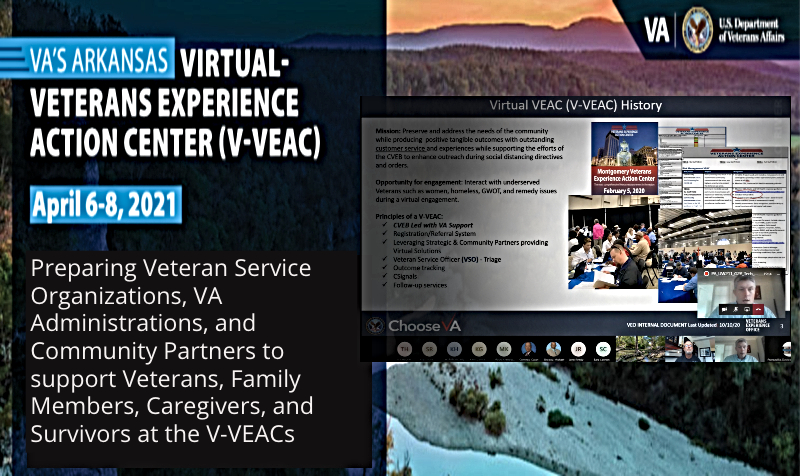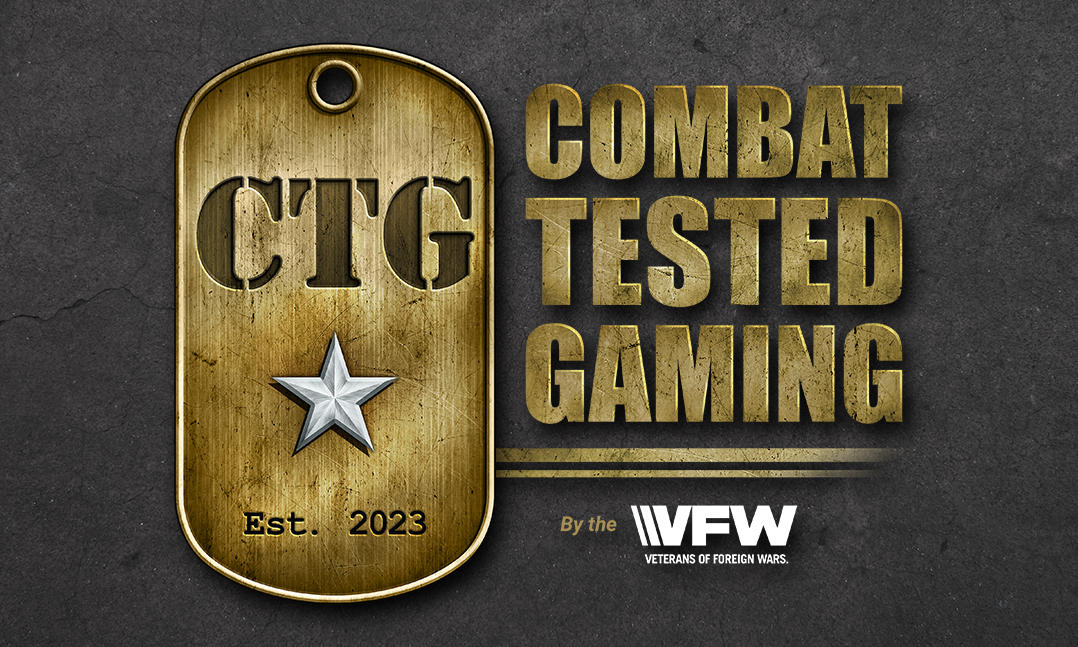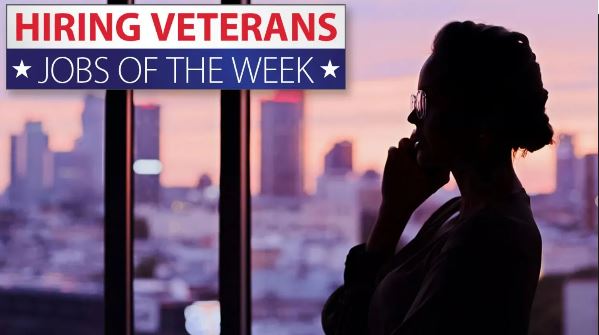Virtual Veterans Experience Action Centers, or V-VEACs, continue to improve outcomes for Veterans, family members, caregivers and survivors across the nation. The program was established to proactively assist Veterans in a selected state with a one-stop resource for all their needs.
The V-VEAC brings together VA benefits, healthcare and other resources in partnership with state VA resources, Rally Point and other Veteran Service Organizations, and local Community Veterans Engagement Boards, or CVEBs. This holistic approach to addressing Veterans’ needs where they live has shown remarkable results.
One Veteran participating in a Virtual Veterans Experience Action Center (V-VEAC) shared, “I am blind and found out my service dog may be eligible for veterinary service. Sox says ‘thank you.’ I have a smile on my face.”
While the Veterans Experience Action Centers (VEACs) began as in-person events, the ongoing pandemic pushed the evolution to a virtual version in which Veterans are assisted over the phone. Prior to the pandemic, in-person VEACs were held in North Carolina, Iowa, Georgia, and Alabama. Virtual events have been hosted in Florida, Pennsylvania, Colorado, Arizona and Alabama. The next V-VEAC is in Arkansas, from April 6-8, 2021.
Tangible results from the V-VEACs
It is important to understand that not only are there tangible results, but these results span a wide array of challenges faced by Veterans. Just a few real-life examples of the care provided at V-VEACs illustrate the importance of these events to Veterans.
A severely disabled Veteran was initially denied a claim for increased benefits and special monthly compensation for severe, service-connected disabilities. However, during a V-VEAC, he was engaged by a Veteran service officer who then referred the Veteran to the VA regional office. The Veteran’s claim was initially denied again, but upon closer scrutiny, the RO later adjudicated in the Veteran’s favor. The result was a lump sum payment of over $34,000, an increase of nearly $5,000 a month in disability payments, and authorization for grants to adapt the Veteran’s home and auto to his disabilities.
Another Veteran attendee offered, “I did not know I could get free CHAMPVA medical as a caregiver.” And finally, “This was the greatest experience and super glad I found out about it. Easily signed up and had every need meet by very courteous, professional, knowledgeable staff, and it didn’t take long at all.”
Another Veteran had an appointment during a different V-VEAC, and it was discovered she was homeless and had two small children. The Veteran’s homeless status energized several groups supporting the V-VEAC to ensure this Veteran did not go another day without resolution to her situation. By working across multiple VA administrations, a VA medical center, a local Community-Based Outpatient Clinic, and community partners, this Veteran was placed in stable housing and received ongoing case management from the VA medical center staff.
In yet another example, from a third V-VEAC, a Veteran was surprised to learn he was eligible for VA health care. Because he never knew he was eligible, he had never attempted to enroll. However, after speaking with a supervisory social working at a local outpatient clinic, the Veteran enrolled in VA health care, and the call was converted to a VA virtual appointment to assist the Veteran. As a result, the Veteran was determined to have multiple co-morbidities and required urgent medical attention. Follow-on medical care was coordinated and the Veteran was transported to the nearest emergency room for active health issues. Following the emergency care, a VA primary care provider was assigned to the Veteran and a home health agency was coordinated for the Veteran’s activities of daily living.
Veteran response to these events
An essential step in the V-VEAC process is administering a customer satisfaction survey, known as a Community Signals (CSignals) Survey. The CSignals survey allows VA and our community partners to gauge Veterans’ perception of the customer experience. To date, the results of these surveys show that 91% of participants felt they were positively impacted, and 82% of those same participants say they trust the VA and their community partners to care for the Veterans’ needs.
To be fair, this system isn’t perfect, and there is still room for improvement. Some Veterans were frustrated with what they perceived as long hold times on the phone, multiple transfers, or the fact that calls come in from a Washington D.C. area code and not a local number. These concerns are taken seriously, and efforts are underway to make these events even better moving forward.
Perhaps the most encouraging feedback gleaned from the CSignals surveys came from Veterans, family members, and caregivers who were not only happy with the service but often expressed surprise in receiving care and benefits they did not know they were entitled to.
This innovative partnership between VA, the states, VSOs, CVEBs and other community partners continues to grow, mature and improve the lives of Veterans, family members, caregivers and survivors.
Topics in this story
More Stories
VFW’s Combat Tested Gaming tournaments bring together Veterans, active duty personnel and the gaming world.
How much do you know about VA care, benefits and services? Don’t miss out on what you've earned—check out the "2025 VA Federal Benefits Guide for Veterans, Dependents, Survivors, and Caregivers" handbook to learn more.
Each week, we receive job announcements from employers and employment websites—including RallyPoint, RecruitMilitary, VetJobs and HireMilitary—looking to hire Veterans. This post contains links to job listings for the week of Jan. 13, 2025. Each week, we’ll continue to post relevant and timely listings as we receive them, and for the locations listed.







Are National Guard honorable discharged people (1950-1960) eligible for VA health services?
I went to the Regional office at Jesse’s Brown seeking help pertaining to my disagreement of decision,and they were closed.My year is up.What can I do? I’m at a lost.
A friend sent me an email about enlisted soldiers being tested for their reaction to various chemical agents during WWII. The email said that this practice was stopped after the war ended. When I was on active duty during the 1960s, the soldiers in my section told me that they were given LSD in an experiment to see how it would affect them. Additionally, when I enrolled in a CBR (Chemical, Biological, Radiological) course, all students were subjected to liquid mustard agent as part of the course. The purpose was to show that M-5 ointment can be used to decontaminate the effects of mustard agent. Three spots were delineated on my left arm with one spot smeared with M-5 ointment and the other two spots left alone. Then a diluted amount of liquid mustard agent was put on the three spots. We had to use the pinch and blot method to decontaminate one of the spots. The lesson was the M-5 ointment protected one spot, another spot was decontaminated, and the third spot showed the effects of the mustard agent, a blister. I still have a scar from this lesson. In the email from my friend, it said that exposure to liquid mustard could cause cancer and other ailments. What is my recourse at this point? I am physically healthy so far.